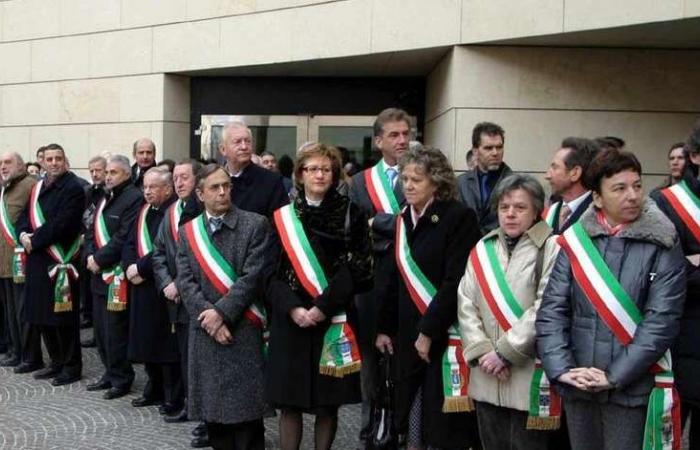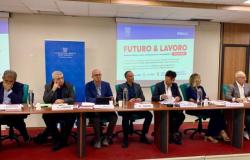
TRENT. If you are an employee, your salary has not increased for ten years, but inflation is galloping at +10% per year, you are in good company: even the Trentino mayors ask for “at least the recovery of inflation” in their allowances. It is just one of the topics of the last session of the Cal – the Council of local autonomies – meeting in Trento.
The Council examined and expressed its opinion on the draft regional law on the adjustment of the budget forecast of the autonomous region of Trentino-Alto Adige/Südtirol for the financial years 2024-2026, and in particular with respect to the rules, in contained therein, which affect the organization of local authorities.
Last session (5 June) the Cal, after the explanation, reserved the right to delve deeper into the bill and to express its observations in today’s session. Also present was the Vice President and Councilor for Local Authorities of the Autonomous Region of Trentino-Alto Adige/Südtirol, Franz Thomas Locher, who began by recalling his experience as Mayor in Sarentino. “A position – he said – which teaches how to administer public affairs and which involves many skills. Much has been done – he added – and we still have to do on issues that each municipality can indicate. The important thing – he added – is to work in synergy between the Municipalities of Trento and Bolzano, enhancing the role of the Municipal Consortia”.
Before examining the specific provisions of the bill, the Cal – chaired by the President, Paride Gianmoena – wanted to draw the attention of the Regional Council to some issues not addressed today, and yet of particular relevance to guarantee the functionality of the representation democratic among the local authorities represented within this Council. First among all the crux of low voter turnout, and the growing difficulty of finding, especially in smaller municipalities, candidates for the office of mayor and city councilor. Gianmoena made no secret that some reasoning must be done, also following the low turnout that was also recorded in the recent European elections: “A phenomenon – he said – which the institutions and politics must take charge of, making every effort to recover the trust and involvement of the electorate”.
In the immediate future, it is necessary to at least reconsider some provisions of the municipal electoral regulations, to avoid that the risk of invalidity of the elections could further undermine democratic participation. In this regard, the proposal was put forward, on a transitional basis for the general round of 2025 and in municipalities with up to 5,000 inhabitants, to reduce the structural quorum for the validity of the elections, provided for by the art. 287 CEL, in the event that only one candidacy for mayor has been admitted and voted on, by 50% to 40% of those registered on the electoral lists of the municipality, always net of voters registered in the register of Italians residing abroad. This is in line with what was recently envisaged by the national legislator. Again in electoral matters, it is foreseen, moreover, by the national legislator.
Still on electoral matters, Cal reiterated its request to establish that the next municipal elections take place in autumn 2025, thus safeguarding the five-year duration of the mandate. The request – ha
President Gianmoena pointed out – is based not only on the political opportunity to ensure that those elected in 2020 have a full mandate for the realization of their electoral programme, but also on the desire to avoid possible disputes, which could be brought by any interested party, which would fuel uncertainties on the election date. In order to allow the administrations, the outgoing mayors and councilors, and the citizens themselves to know, in good time, the discipline and times that will mark the conduct of the next electoral round, the Council has also urged the Regional Council to take a position on these issues as soon as possible, starting from this budget adjustment or in any case no later than next autumn. Furthermore, the request was to involve the representation of the municipalities also with respect to any amendments that may be proposed in the chamber during the course of the passage of this bill, regarding these or other aspects relating to the electoral matter. This, in particular, was asked regarding any interventions regarding the determination of the maximum number of consecutive mandates that can be carried out in the office of mayor, regarding which it was learned that discussions with the Government are underway.
New solutions are also proposed regarding the regulation of office allowances and attendance fees of the administrators of the local authorities in the region, starting from the general rotation of 2025. Cal’s proposal is to redefine the demographic classes on which these compensations are divided, taking more into account the demographic distribution in the Municipalities between 10 thousand and 30 thousand inhabitants.
Again for this demographic range, and for that of 30 thousand to 50 thousand inhabitants, the proposal is that of a revaluation of the allowances currently foreseen at the rate of 8%, in order to recover the inflation trend in the last two years, and taking into account that – for the same demographic groups – no adjustments had been adopted in 2022.
Finally, an amendment is proposed, aimed at providing greater clarity on the matter of the system and the competences of the Comun General de Fascia in line with the constitutional principles of provincial regulations. Procurador Giuseppe Detomas intervened on this point and specified the meaning of the amendment. The provisions of this law regarding government bodies, the status of local administrators, active and passive electorate, organization of personnel and electoral procedures, as well as the provisions, apply to the Comun General de Fascia.
In the discussion on issues relating to electoral discipline, the Mayor of Cles, Ruggero Mucchi, urged a rapid choice for the benefit of citizens, hoping for alignment with the national legislation which sets the electoral consultation in May 2026, for those elected in 2020. The Mayor of Arco, Alessandro Betta, also spoke on the same topic and, having explored the opinion given on the point by the State Attorney’s Office, highlighted the risk of possible appeals in the case of the vote in May, which would exclude the possibility of carry out the full mandate.
The Mayor of Pergine, Roberto Oss Emer, also spoke, raising the issue of the number of consecutive mandates that can be held for the mayors of municipalities over 15,000 inhabitants, and highlighting the need to have as clear a legal framework as possible within a short timeframe. The President, Gianmoena, also insisted on the need for clarity in the legislation.
A topic on which the Councilor, Locher, has committed himself to an overall reasoning for find a solution quickly. The issues, he said, are on the table and await an answer which we intend to give.
In conclusion, the President of Cal, Paride Gianmoena, thanked the Councillor, and assured that the Council will produce a document that will address all the issues discussed, with the usual constructive logic.




